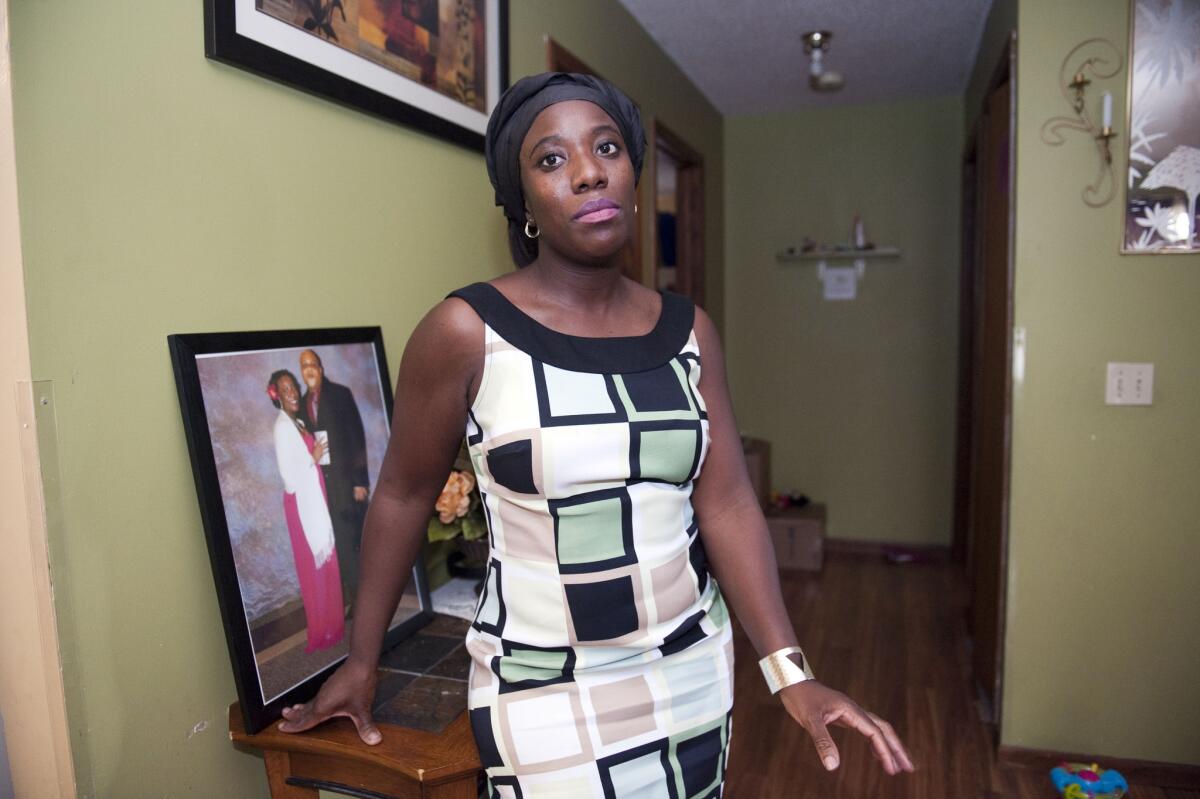Suspected U.S. Ebola victim in Nigeria had planned to visit Minnesota

A man whose death is believed to be Nigeria’s first in a still-widening Ebola virus outbreak was planning a trip to Minnesota to visit his family next month, his wife said.
Patrick Sawyer, a 40-year-old consultant with the Liberian Ministry of Finance, was en route to a conference when he collapsed upon arrival in Lagos, Nigeria, the Associated Press reported.
His wife, Decontee Sawyer, said that she had spoken to him a week earlier and that he had made plans to be stateside in early August to celebrate the birthdays of two of his three young daughters. She said the couple had been separated.
He is believed to be the first American to have died from the current outbreak, which has killed 672 people since March, according to World Health Organization figures.
According to the WHO, Sawyer had displayed symptoms of Ebola during travel and arrived in Lagos on July 20, where he was immediately quarantined. He died five days later, and preliminary lab results say he tested positive for Ebola. The WHO says it is awaiting confirmation from a laboratory in Dakar, Senegal.
The AP reports that health workers are trying to track down the dozens of people who may have been exposed to Sawyer at three international airports in West Africa, including fellow passengers and flight attendants.
The WHO has not issued any travel restrictions in light of the Ebola outbreak in West Africa, which is believed to be the worst in history.
Officials there say the chances of travelers contracting the disease are slim, since it isn’t easily spread through casual contact, but requires direct contact with blood, saliva or other bodily fluids.
Still, Sawyer’s death in Lagos, a city of 21 million people and the largest in Africa, has raised concern that the disease, which is incurable and frequently deadly, might spread rapidly to other population centers and abroad.
African airline ASKY, on which Sawyer traveled before his death, announced Tuesday it was suspending all flights to and from Freetown, Sierra Leone, and Monrovia, Liberia. It also announced it would be screening passengers at airports throughout West Africa.
Speaking to The Times by phone from Coon Rapids, Minn., Decontee Sawyer said she believed her husband was probably in denial about having contracted the disease, and was determined to see his children, a thought that both touches and terrifies her.
Nigeria was supposed to be his last stop before coming home.
“It’s Patrick, but it’s scary that it came this close,” Sawyer said. “It already got my husband, and it could have gotten my kids and me and everyone.”
Sawyer said she and her husband were born in Liberia and that both immigrated to the United States and became citizens. Patrick Sawyer returned to Liberia in 2008 to work in the economic development sector, she said, and came home to visit every few months. But she hadn’t seen him for more than a year.
“He felt that Liberia needed him more,” Sawyer said Tuesday.
Sawyer says her husband contracted the Ebola virus from his sister, who recently died of the disease. He had cared for her when she became ill, but it wasn’t until after her death that family members became aware she was carrying Ebola.
Sawyer says she is now focused on raising her three children and on organizing the large Liberian community in Minnesota to help aid organizations abroad who are battling the disease, in hopes it won’t make its way to the U.S.
“If we here think that it’s those people’s problem across the ocean, we’re wrong. It’s become our problem now,” Sawyer said.
For more breaking news, follow me @cmaiduc
More to Read
Sign up for Essential California
The most important California stories and recommendations in your inbox every morning.
You may occasionally receive promotional content from the Los Angeles Times.











